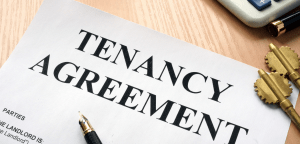Source of article from Property Guru Malaysia :https://www.propertyguru.com.my/property-guides/exploring-tenant-rights-and-tenancy-agreement-in-malaysia-23640
As a tenant, you have to know your rights & few important things about tenancy to avoid being bullied or lied by the landlord.
So first,
Tenant rights in Malaysia is something of a complicated picture. While there’s currently no specific legislation covering rental agreements, a study is underway to introduce a much-anticipated Residential Tenancy Act in the next few years. This act is not only designed to protect tenants, but to ensure a fair market for landlords too. As things currently stand, there’s no single regulatory framework or mandatory contractual obligation for a specific tenancy agreement. You can meet Ali on the street and agree to move into his apartment, creating an oral agreement for tenancy. Of course you’d be mad not to check the house first!
So what laws DO impact the rights and responsibilities of tenants and landlords? Here’s a quick list:
Contracts Act 1950 – is the legislation which would cover conflicts on the tenancy agreement
Civil Law Act 1956 – is the legislation which would cover payment disputes
Distress Act 1951 – is the legislation covering matters of eviction
Specific Relief Act 1950 – prohibits a landlord evicting the tenant or making the property inaccessible to tenants without a court order
Common Law/Case Law – is an overarching framework which would cover rental disputes
One crucial piece of legislation to note is the definition of a tenancy itself. Under the National Land Code, any rental under three years is defined as a ‘tenancy’, and does not require registration. Any lease for a period longer than three years is technically defined as a ‘lease’, and would require registration. So with all these complications, how best to protect yourself? Well a tenancy agreement is a good place to start. This kind of rental contract lays out the terms and conditions agreed by landlord and tenant at the start of a rental period. It’s an important document to ensure that both parties understand their responsibilities, and both parties have their rights protected.
That can include standard clauses such as rental cost and rental period, but also cover oddly specific things such as whether your goldfish is allowed to stay, or even if you’re allowed to decorate your bedroom. It’s common for landlords or letting agencies to offer an existing tenancy agreement template, but don’t be afraid to ask for additional clauses if you really want to make sure things you’ve discussed are set down in stone. Make sure you check the property thoroughly before signing the agreement too – often you’re accepting the property as it currently is, meaning if you miss out on a broken aircond now, you might be charged for it later.

Now, here are some of the things you should look for in a rental agreement:
-Monthly rental fee
-Duration of rental agreement
-Penalties for late payments
-Terms and conditions around changes to rental cost
-Terms and conditions around duty of care
-How costs are attributed for repairs
-Terms and conditions on return of deposit(s)
-Terms and conditions on subletting/additional tenants
-Utility bill and property tax obligations
-Special clauses (pets, smoking, access to amenities)
You should have a lawyer look over any house rental agreement if you’re uncertain of your rights or responsibilities. That could come with costs now, but it might cost you a whole lot more later if you don’t check. Having the agreement legally stamped is also important. You can find out more about those costs below!
Early Termination Of Tenancy Agreement In Malaysia
This is a question that gets asked a lot, so it’s worth highlighting clearly. Under current contract law in Malaysia, if you sign a two-year rental agreement, then choose to cancel after one year, you may be liable for the 12 months of outstanding rent. Since the original tenancy agreement covered a two-year period, then contractually you are obliged to fulfil that obligation! Sucks? Sure does. There’s also a situation where change of ownership may cause issues. If a rental agreement is registered as a lease, then in the event a property is sold, the new owner is automatically tied to that agreement. If the property is rented for less than three years, and the owner claims no knowledge of the rental agreement, the buyer may have the right to remove the tenant.
Such problems can be smoothed over if the original owner sets out terms as part of the Sale and Purchase Agreement to allow the tenancy to run its course.
What Your Landlord Should Expect Of You
Don’t forget – landlords have their own rights too!
Many of those rights will be set out in the rental agreement itself, but a common understanding of a tenant’s duty of care and respect for property can be summarised fairly simply with the following expectations:
-Timely payment of rental fee
-Expectation you will exit the property at the end of the tenancy
-Duty of care to maintain property to a decent standard
-Obligation not to renovate/alter the property
-Expectation you will pay all relevant bills
-Understanding of returning property in the condition you received it
Your Obligations As A Tenant
We sometimes think of our obligations (while we’re tenants) as simply a financial one. It’s true though, that the landlord is going to come looking for you if you don’t pay your monthly rent!

You also have obligations to ensure you maintain that property at a good standard, and care for it during your tenancy. Those responsibilities can include:
-Payment of relevant deposits at start of tenancy
-Payment of rent on time as agreed
-Duty to notify landlord of any necessary repairs
-Duty to keep the property clean and safe
-Commitment to not break relevant laws or statutes
-Payment of utility bills
-Permission for any new tenants/sublet in the property
What Happens In A Tenancy Dispute
Good communication is the first step to prevent any disputes! Be honest and open with your landlord or landlord’s letting agent. That means if accidents happen or things break down, you should tell them. Likewise, it’s important your landlord keeps you informed of any problems. If they’re sending around a repairman to upgrade or fix something in the house, they should tell you in advance, and not just assume you’re happy that some random plumber turns up without warning. These are basic examples, but paint a picture of the importance of good communication. Discussion should always be the first step in any dispute. It may be that a verbal agreement can fix a problem far better than any legal action. Many such disputes will already be covered by the terms and conditions of a good tenancy agreement.
Common Legal Problems For Renters
The most common legal problem for renters is the question of early termination of contract outlined above. Let’s stress again – if you terminate a rental contract agreement early, you may be liable for the full rental payments due for the remaining term of the contract.
Early termination by the landlord is another common problem. Your tenancy agreement should cover this situation also.
It is unlawful for a landlord to evict a tenant randomly, without a court order, as covered in the Specific Relief Act 1950. This legal cover also includes your landlord making the property inaccessible through changing the locks. If, however, you fail to pay your rent on time or damage the property, there is likely to be a clause of termination as a result. The landlord can serve you with a payment notice, and then seek eviction if you fail to pay. This process is a lengthy and often costly one for the landlord.


